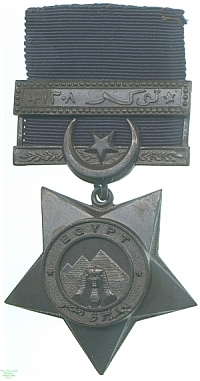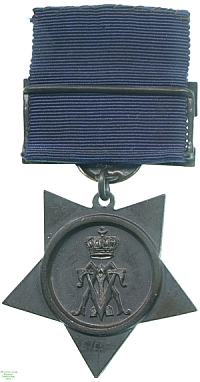Khedive's Egyptian Star, 1893
Most of the battles in the final years of British influence in Egypt were rewarded with issues of the Egyptian Medal, but the Egyptian Khedive Tewfik Pasha showed his gratitude for British help with issues of his own bronze star for the campaigns in his kingdom.
One of these, the siege and capture of the Mahdist stronghold of Tokar in the Sudan, was unusual in that no British award was made for it, although the Khedive's Star could be worn in uniform. Tokar had since 1883 been the seat of the Beja leader Usman Dinga, and the 1891 campaign resulted in his briefly being captured.
Those who had already been awarded a Khedive's Star for earlier Egyptian campaigns were awarded only the bar for the Tokar campaign; issues of new undated stars with this bar are comparatively rare, therefore, as they went only to the newest soldiers in the forces involved. One such must have received this medal, but as it is unnamed, we do not know who he was. Lester Watson acquired the medal at some point before 1928.

